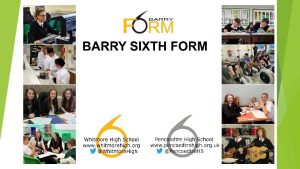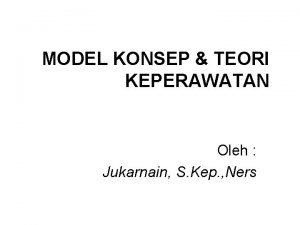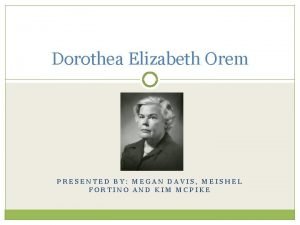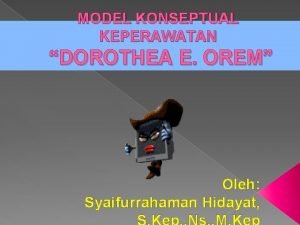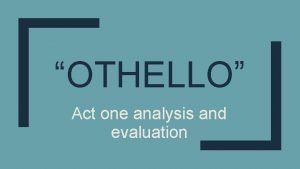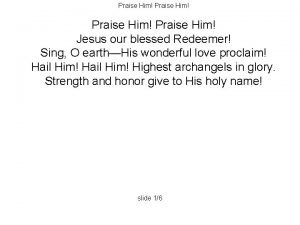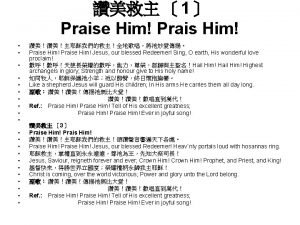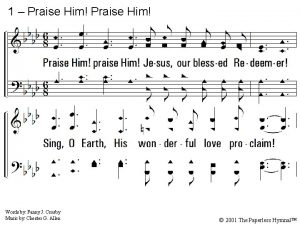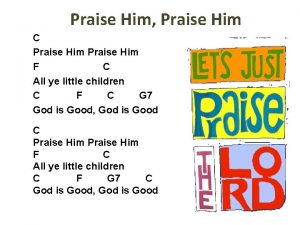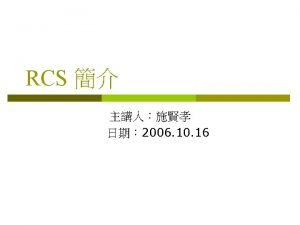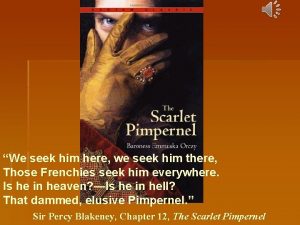RICHARD II REVISION Some find him Richard wholly











- Slides: 11

RICHARD II REVISION

‘Some find him Richard wholly contemptible and not deserving of sympathy’. Consider this view in relation to Richard II.

Break down the key words and then use them to identify the debate they are inviting you to discuss. ‘Some find Richard wholly contemptible and not deserving of sympathy’. Consider this view in relation to Richard II. Wholly- only, exclusively, fully Suggests Richard does not deserve any pity, compassion at any point in the play. contemptibledisgraceful, shameful, despicable

EXAM PLAN

POSSIBLE PLAN Certainly aspects of her character and rule which are arguably disgraceful in the opening two acts- dire failings as a leader - implications in Gloucester’s death, political shrewdness and coldness in banishing Bullingbrook, dismissive and rude of Gaunt’s and York’s warnings plus seizing of Gaunt’s lands, possessions. Sarcasm towards York. Explore the imagery Shakespeare uses to establish this capricious, tyrannical character- Quotes- ’landlord of England’, ‘reputation sick’, ’ ‘made shameful conquer of itself’, ‘seven sacred vials. . One hack’d down’, ‘pluck a thousand dangers’, Show the tragic elements fit into the points above- his tragic flaw, hubris, hamartia, belief in his divine right as king, banishment of Bullingbrook, seizing his inheritance, failure as a ruler (Gaunt’s speech, flatterers) Events set Richard's reversal in fortune (Peripeteia) in motion- the audience can arguably feel some - Bullingbrook’s return, Welsh troops desert, York’s siding with Bullingbrook- dramatic irony throughout Act 3 Scenes 2 etc. Richard's genuine affection for England only to return to find his kingly rule is in jeopardy. Certainly could be argued we can feel sympathy for Richard- after all he is divinely chosen by God, Act 2/3 - York warns Bullingbrook is in ‘gross rebellion and detested treason’ and still claims Richard ‘bright as the eagle’s ‘looks like majesty’, Bullingbrook is in Richard and Carlisle’s opinion committing a ‘heinous, black obscene deed act’ and Richard warns that there will be ‘purple testament’. Richard deserves sympathy because he is ‘phaethon wanting to manage the unruly jades’, Adam and Bullingbrook has made the second fall of man. - authorial methods- animal imagery, prophetic warnings/religious imagery, Greek mythology. Richard’s increasing humility and recognition of his error of judgement – his grief in the deposition scene and final moments before his death. -mirror imagery, religious imagery, use of antithesis. ‘with my tears I wash away the balm’, ‘crack'd in a hundred shivers…How soon my sorrow hath destroy'd my face’, ‘My sceptre for a palmer's walking-staff’ Within this section Richard's reflection of his mortality and limitations will prove to be his megalopsychia, and his acknowledgment of his shortcomings will be anagnorisis. - ‘dust was thrown upon his sacred head, His face still combating with tears and smiles, The badges of his grief and patience’, ‘I wasted time, and now doth time waste me’

Consider the view that Bullingbrook’s actions are politically correct but morally wrong.

Explore the view that Richard is to be pitied rather than admired.

Dramatic methods Structure- exit/entrances juxtaposition of certain scenes for dramatic effect stages of the tragedy dramatic irony contrast of scenes- movement between different scenes and how they portray Richard, also the mood they suggest and contribute to the overall tragedy: Richard as administrator of a terrible judgement at the start of the play, scenes of irresponsibility with his favourites, contrast with the scene where Bullingbrook oversees accusations against Aumerle, his arrogance in speaking of Gaunt and the tender scenes with Isabella the use of the mirror in focusing on Richard’s tragic recognition Gaunt’s speech about England Richard’s dramatic contrast with Bolingbroke his speeches and soliloquies, variety of imagery, linguistic devices, Greek mythology etc.

Act 5 Richard debates with himself the tragic irony and pathos of situation as a king and no king, one that has enjoyed the greatest power on earth and now see himself reduced to nothingness. The man who starts by being in command ends by being commanded. He becomes belatedly aware of the extent to which his own mismanagement has contributed to his downfall. He wastes time in that he fails to take advantage of the great opportunities and import disorder into a situation that calls for orderly rule of the law. ‘Time wastes’ him by punishing him for his offence against order. Richard is exposed to the opportunism of Bullingbrook who takes the chance, where it is offered to him to seize power and establish himself as king. Social hierarchy (God ordained) King Arisotcracy Clerisy Commercial classes Peasants It would be seen as a heinous offence if this hierarchy was disturbed. This hierarchy structure parallels the physical and animal kingdom. The sun is the ‘king of the universe and the planets while the lion is the ‘king’ of the beasts. Both comparisons are made to Richard. The method is antimetable where words are repeated in reverse order. Wasted, time, waste

WRITING AN EXAM RESPONSE COMPLETE SOME PLANNING BEFORE STARTING TO ENSURE YOU STAY FOCUSED ON THE QUESTION. Offer a clear viewpoint, indicating the intended direction you will take throughout the rest of the essay. Avoid simply repeating the words of the question with simply adding yes he can or no he can’t etc. Your points should be the written in a logical order, consider carefully whether you should discuss the play in chronological order. With each point you make provide a quote, provide context for the quote and interpret its meaning. Further, identify any significant authorial methods and dramatic methods used. Be selective with the quotes you use only including those which strongly support your argument and with precision. You need to recognise the difference between part so f the play which develop the plot and those which have symbolic meaning- in other words they stand for something important which explores a character or theme. Throughout your essay, particularly as you move to new sections, return to the question to reinforce your argument. Do not, however, simply keep repeating the phrasing in the same way. Use synonyms to show you understand the focus of the debate. At key moments in your response, identify the tragic elements of the play linking them to the question you are debating.

TRAGEDY TERMS public figures nature natural order disorder personal dignity fatal flaw disorder tragic villain fate free will tragic flaw hubris hamartia error of judgement megalopsychia anagnorisis carthasis pathos
 Hast thou heard him seen him known him
Hast thou heard him seen him known him Active and passive vocabulary
Active and passive vocabulary Let's do some revision
Let's do some revision Pearson btec level 3 health and social care
Pearson btec level 3 health and social care Fdi meaning
Fdi meaning Wholly nutrition btec
Wholly nutrition btec Tujuan teori keperawatan adalah
Tujuan teori keperawatan adalah Dorothea orems theory
Dorothea orems theory Megan fortino
Megan fortino Dorethea orem
Dorethea orem Othello annotations act 1 scene 1
Othello annotations act 1 scene 1 Praise him praise him jesus our blessed redeemer
Praise him praise him jesus our blessed redeemer





